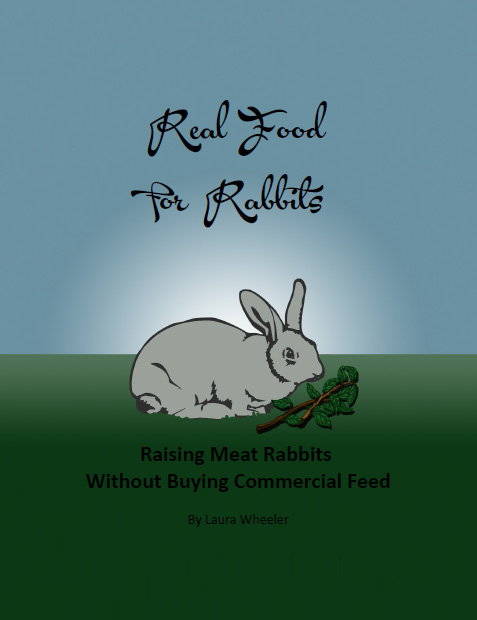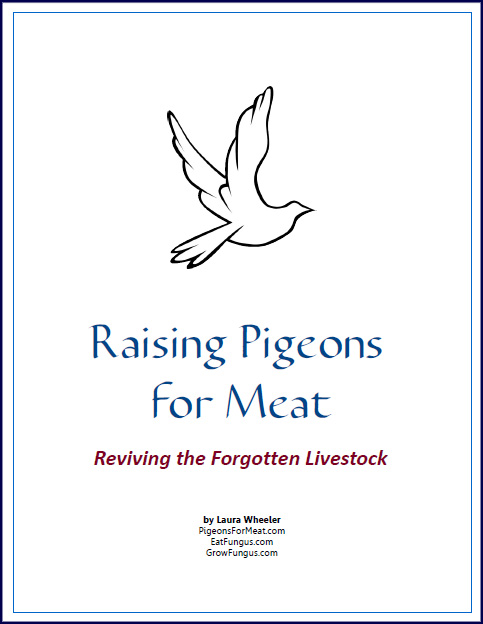 Click to Download Your Free Heritage Pickling and Culturing e-Book Now!
Click to Download Your Free Heritage Pickling and Culturing e-Book Now!
Instant Download, NO Registration Required!
Your Dog Does Not Love You Unconditionally
Your dog doesn't "love" you unconditionally. Your dog doesn't even "love" you CONDITIONALLY. The relationship is based purely on benefit, and is definitely conditional.
Dogs are capable of devotion but not love, because love requires choice, and love means a person has a vested emotional interest in a relationship. Devotion in an animal is a conditioned response to a benefit given. The dog wants the benefit - being petted and scratched and played with, being fed and sheltered is a benefit they enjoy, and they'll behave in a conditioned manner to achieve it, and will stick close and give firm and unwavering companionship in exchange for it, provided they are not required to do so in the face of a serious threat to their own life, and provided someone else does not offer them something that appears better.
Love is something more. It arises from the choice to sacrifice (motivated from a sense of duty at first, and pure affection when a relationship is established). Without sacrifice (giving up something you want to provide something they need), love does not flourish. Animals are not capable of sacrifice, their instinctive behavioral patterns won't allow it - they can only give up one thing for something else they want, and what they generally want is long term security. It is not a reasoned response, just a gut level fear of losing survival benefits that motivates a practical exchange mentality.
Animals are not capable of higher reasoning, they cannot choose to sacrifice, only to exchange hardship for security. You are their meal ticket, and they behave as you train them to, to secure that benefit. A guard dog is bribable by food to leave his post unguarded, because he decides based on instinct - self preservation being the highest motivation, and food being the most desirable benefit at the time. He will not continue to guard your home or family in the face of a tangible benefit that he wants, because he does not love, nor have loyalty based on relationships. He simply sees a benefit and acts on immediate impulse.
Dogs are trainable, but not teachable. They can be trained to specific responses, but they cannot learn the reason for such responses, and they do not determine either moral values, or emotional values to be a primary motivation. Their emotional responses are poorly developed, and overridden in almost every situation by survival instincts which are simply NOT understood well by people who attribute emotion to animal behavior where it is simply a practical response rather than one of affection. TRAINING is based on conditioned responses, with a benefit for the response (the benefit may be a positive thing for compliance, or a negative thing for rebellion), whereas TEACHING is based on reasoning, and understanding of WHY a thing is so, and may involve abstract consequences, not just direct ones.
Breeding also has a strong affect on their responses. A dog bred to fight has an enhanced flight or fight response, which means they are more likely to react dramatically in even minimally threatening circumstances. This response is also bred to result in a fight response, rather than a flight response, so dramatic reactions are not only more likely to occur, they are more likely to be vicious. The dog cannot control that - it has been bred into them, by enlargement of specific areas of the brain, and shrinkage of other parts.
A dog bred for a heightened fight response cannot ever be fully trusted, even when trained to NOT react as much, and it is nearly impossible to breed it out, because it shows up so randomly, and may or may not present before a dog is bred. You can simply NEVER predict what might trigger the response.
You are not a dog. Dogs perceive threats where you do not, and a dog bred with that reaction will perceive them where other dogs won't. Changes in their environment (often small ones, often normal life changes) may trigger alarm reactions in the dog, and it becomes VERY unpredictable, and consequently, very dangerous. NO AMOUNT OF TRAINING CHANGES THIS. The sweet idea that people are responsible for every negative behavior in an animal is not only false, it is a vile untruth, designed to vilify those who would try to stop a vicious animal from repeating an attack behavior.
Dogs, and other animals are not people. Their behaviors and actions are not attributable to the same motivations, and they are not capable of many things that people are.
Dogs have a pecking order - based on survival instinct, and this is common to all packing or flocking animals, including dogs. There is an Alpha (leader) and Omega (the lowest priority), and they are often very vicious about maintaining that order.
They do not nurture their young past the point of dependency (people do, because they have enduring relationships based on love) - and while stories of reunions between animals are rife, it is RARE for an animal to recognize another after a separation of more than a year, generally the "recognition" is nothing more than two animals checking one another out, and recognizing that their prior training has prepared them for a rapid negotiation of place and response between one another (one was always dominant, the other always passive, etc).
They do not create representations of their world to admire, they have no artistic appreciation, and they are not expressive in their behaviors. Emotions are NOT part of their day to day reasoning where survival or even occupation are concerned. Elephants cannot "draw", it is WIDELY KNOWN that they are simply trained to make specific motions with a brush on commands from a trainer, and the trainer must signal each brush stroke. Swans do not "feed" fish, swans simply have an instinct to wash their bills after each bite of food, and the fish gather around to catch the wash off. Tigers do not raise piglets (the photo suggesting this is so obviously Photoshopped that anyone who looks at it assumes it is faked before they persuade themselves that it is not), they simply EAT them. Tigers are PREDATORS, and piglets are PREY. And so are YOU.
Most animals, even highly domesticated ones, will go feral very rapidly. Some do not survive WELL at first, but their latent instincts WILL sharpen up, and they can survive surprisingly well as long as they are dropped into an environment where their food needs are met. Once they go feral though, they become more suspicious of people, and they are not easily captured, and you will lose any benefit you received from them - no more companionship, milk, eggs, fiber, meat, etc. Some animals become a nuisance when they go feral, others become an outright menace.
Dogs are especially dangerous when they go feral, because they are packing animals. A dog that has had a master is MORE dangerous than one that has not, if it becomes part of a ranging predator pack. They attack swiftly, in numbers, and take down anything they perceive as lunch, including people. Feral dog packs are a terrible threat in some rural areas, and in some inner city zones, and they are not intimidated by full grown adults - once they've taken out a person, they will do so again. Pets that are loosed and join a pack will approach a person as a decoy, and lure a person into an attack position, and the rest of the pack will then attack. Word is, even a firearm is of little use, unless you have a bullet (or more) for each member of the pack. People will turn pets loose, believing that they will be "ok" fending for themselves, and those sympathetic may try to "rescue" a stray, only to meet with a tragic outcome, or worse, they may teach their young children that dogs are never a threat, and a child may suffer severe injury or death as a result of attempting to befriend the wrong dog (feral packs are not the only risk for this).
Animals do approximate a type of "grief" process, but it is short lived. They do not have sufficient long term memory capacity for more than this. Their response is more to the loss of a routine and familiarity than it is the specific person. They are only capable of remembering a person who is THERE, they are not capable of remembering it when it is GONE. Whereas a widow may grieve out her days without the husband she lost twenty years before, an animal has adjusted and adapted to a new routine or life pattern within as little as 1 week, and rarely longer than 1 month after the loss of a caregiver.
I am personally OFFENDED when people refer to a dog as a family member, or claim that the dog is as important as their children or their spouse or parents. I find this to be an indication of psychological derangement. No one who has a normal relationship with their spouse, children, or parents would ever make such a claim. There simply is no comparison between the two types of relationships, and a dog may be replaced - and interestingly enough, people who claim they cannot be replaced are the ones who replace them the most quickly. A person cannot be replaced, and they are remembered long after they've exited the life of a mourner. You may "remember" a dog, but NOT LIKE THAT!
Your dog does not "love" you. Your dog simply enjoys being around you because it is more beneficial being WITH you than without - sort of like an uncommitted boyfriend who is only sticking around because he cannot see anything better at the moment.
Don't believe it? Try befriending the neighbor's dog with meat scraps every day, and see where his loyalty lies.








